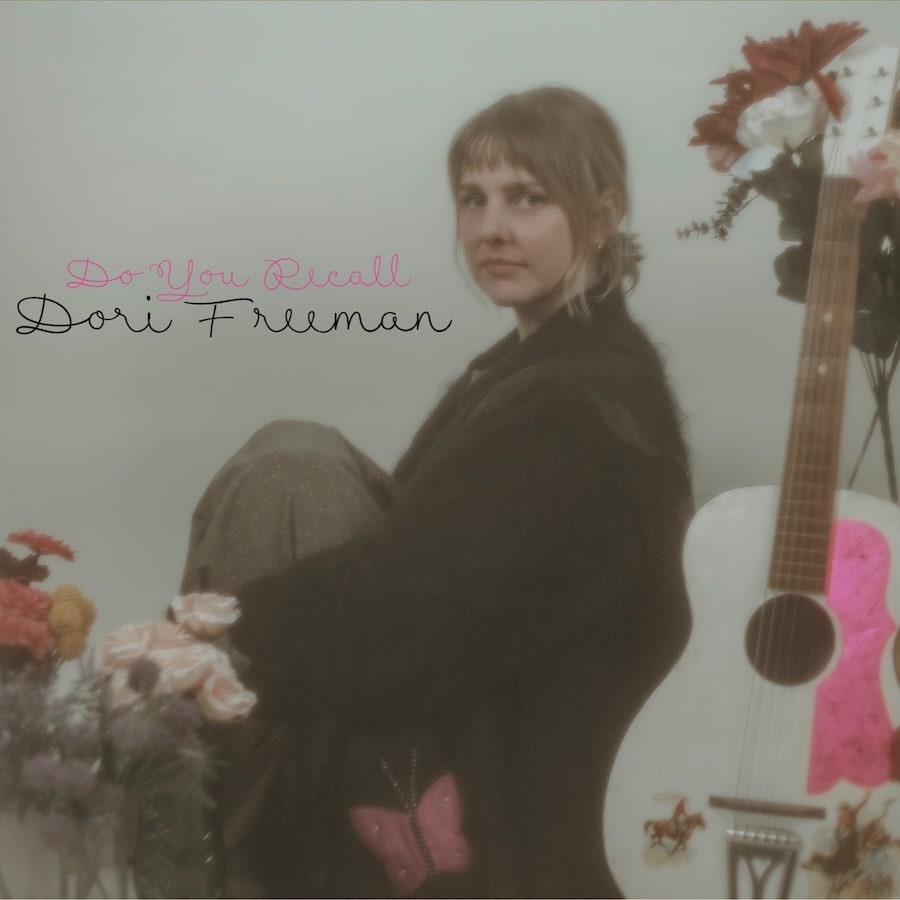
With its elements of soul and pop, Do You Recall is a musical shift from Dori Freeman‘s previous albums but still rooted in Appalachia, opening with the doo-wop and vintage R&B hints of the slow shuffling title track reflective love song (“Do you recall/When you gave me a ring/And we said everything/Do you still fall/Every time I sing/It always ends up being about you”). From marriage to motherhood, Wrong Direction captures something familiar from the sometimes prickly parent-child relationship (“You’ve got that look about your eyes again/They’re pouring out, but nothing’s getting in …I don’t want to be the last word of a long discussion …I don’t want to feel like I’m a wrong direction”) but also the love contained in the last verse “Are you gonna open up that present now/I know you want to, but you don’t know how/I can help you with the paper/And you don’t have to thank me later”.
Social commentary informs the slow walking rhythm of Soup Beans Milk and Bread with its sketch of a hardscrabble Appalachian existence (“Wrist bones thin as a whisper/So tired and missing her sister/Got work early tomorrow/Can’t pay her bills in sorrow”), the social iniquities (“Your belly’s empty but their pockets are fed”) with the have nots downtrodden by the “Black snake out in the backyard/Copperhead in the Capital courtyard” and exploited by those in power (“Old Appalachia is a rich man’s drug/And they’re addicted to the veins we dug/They’re gonna push that needle til there ain’t no more/And they don’t give a damn who they leave poor”).
A perkier track, the old time banjo bluegrassy swaying Movie Screen was written during the pandemic after watching hours of Peaky Blinders, the screen becoming a metaphor for the way people turn to entertainment as distraction from the challenges of their day-to-day lives (“Well I go to the movies so I can be free/To sail far away with the man on the screen/And though it ain’t real and though it ain’t true/It eases my mind for an hour or two”).
Joined by Teddy Thompson on vocals, Good Enough is a choppier, rockier number about trying to measure up to the expectations of others as she asks, “Do I live in reality/Or do I see what I want to see…I want to be good, but am I good enough for you” and “How is it we try so hard/And still fall short of the other’s bar?”.
That feeling is also there on the 90s country punchy guitar swaggering Why Do I Do This To Myself, a track that equally speaks of relationships and a parent watching their child grow (“There she goes slipping through my fingers/I listen to the Abba song/I wish the little years would linger/I hit repeat and I sing along”) and of self-questioning (“The clock is ticking like a warning/Judging everything I do…Now I’m staring in the mirror/I try to recognize myself”).
Opening a capella with pedal steel and a slow, steady drum beat, love turned bad is the subject of Rid My Mind (“At least I’ve learned my lesson now/Not every heart is true/Some lovers only take your hand/When they want more from you”). A co-write with drummer husband Nicholas Falk, the choppy percussive River Runs, with its reverb, is a recipe for staying together when one of you is always leaving (“When the water’s rough and wild/We share a shoulder/And everybody needs a hand/With getting older/We know how to get along/Stay together/Floating in a photo booth/Down the river”).
Balancing motherhood and trying to earn a living making music is the initial impetus of the metronomic They Do It’s True (“Make my coffee, fold my clothes/Hug my kid and play my shows…And yes all of my bills are paid/But that don’t mean I’ve got it made/Counting every dollar/As it leaves”), before shifting again to Appalachia’s us and them divide (“Our world is burning/But it’s fine if you’re a CEO/Making your earnings/On the suffering down here below”) because “If you’ve ever lived on a mountainside/In a little shack or a double wide/Then there ain’t no seat/At the table left for you/And God forbid you’re black or brown/And ain’t no woman safe or sound/When the rules they make/Are made to shit on you”.
It’s back to the daydreams of the everyday for a co-write with father Scott, the witty waltztime strum and shuffle Laundromat, a few moments away from the spin cycle of life as “I sit and watch my blue jeans drown/I kick back and I kick around/The thought of relaxation/But who’s got time for that/It’s my laundromat vacation/The drier hums me a lullaby/And into paradise I fly/I come late when the morning is nigh/And wash away all my frustrations”, extending the metaphor into a relationship that’s been put on rinse (“I threw in the coat you wore/It still makes my heart feel sore/‘Cause you don’t want me anymore”).
It winds up with the upbeat ambulations of Gonna Be A Good Time (“Singing you a song now/So you can sing along now/Nothing can go wrong now”) and a love letter postscript (“When I sing without you/I only sing about you/I do/And now my little heart is aching/It’s only yours for taking/It’s true”).
Eclectic and electric in equal measure, this fine album sees Freeman reaffirming her Appalachian roots and looking beyond them, touching on old traditions and creating her own as her star continues to rise.
Bandcamp: https://dorifreeman1.bandcamp.com/album/do-you-recall
